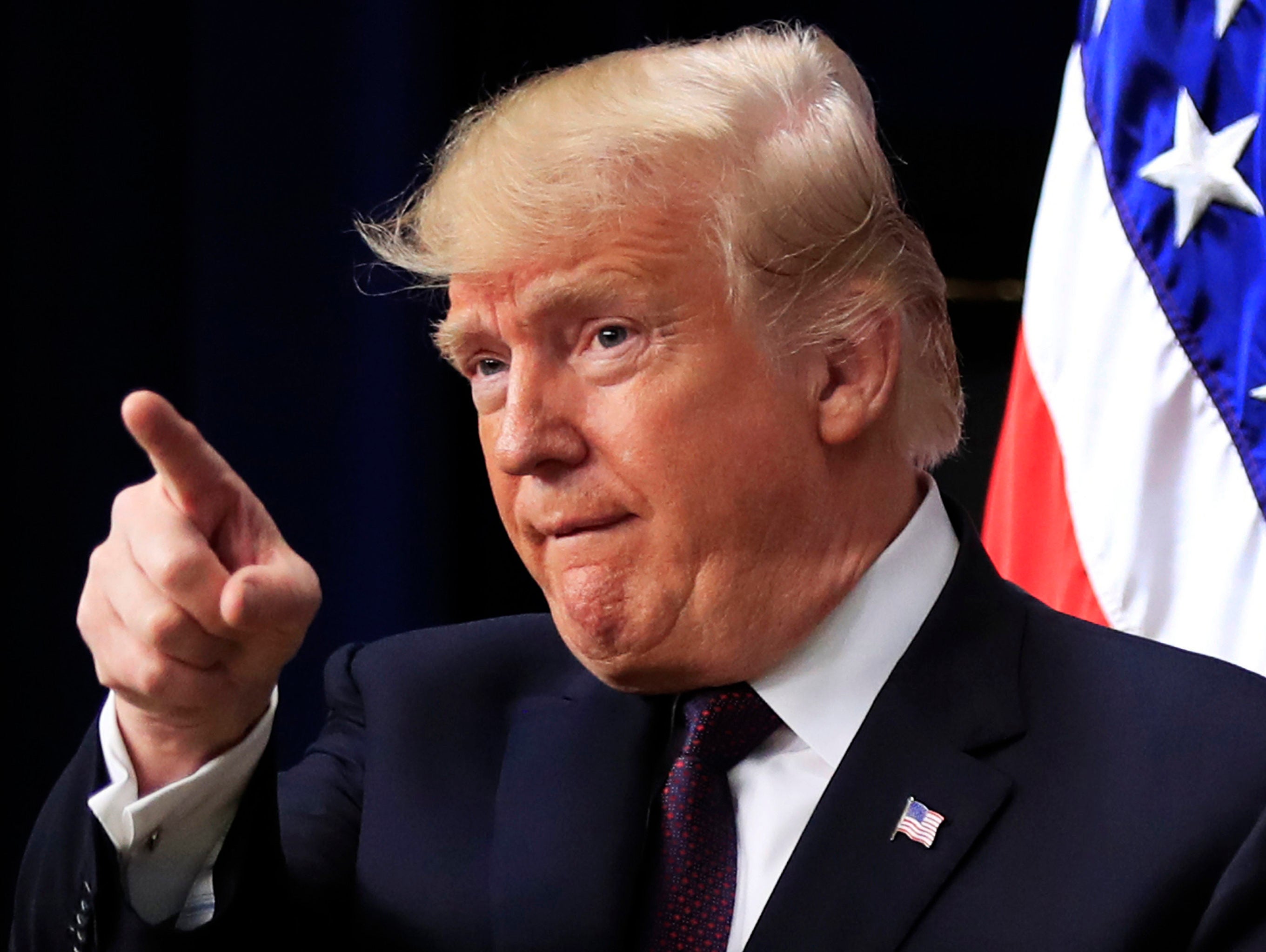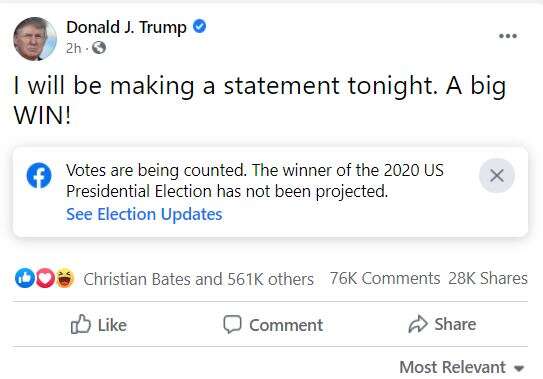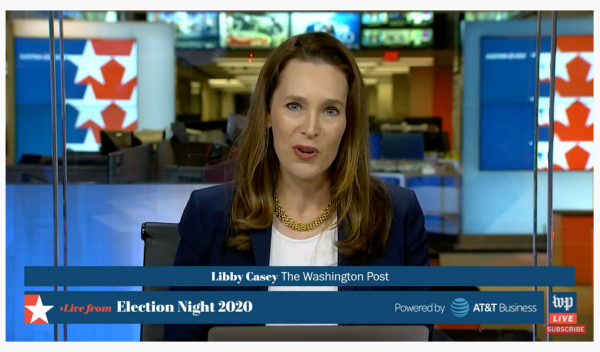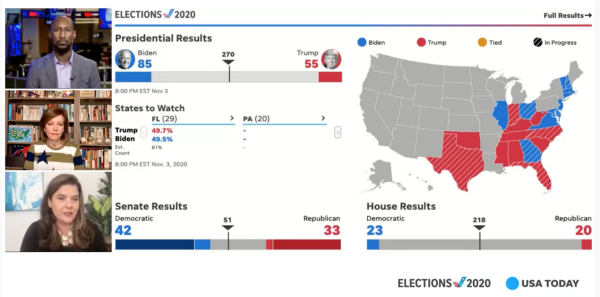
Facebook and Twitter both this morning placed warnings on contentious messages posted by US president Donald Trump.
With election victor yet to be called, Trump said on Twitter at 5.49am UK time: “We are up BIG, but they are trying to STEAL the Election. We will never let them do it. Votes cannot be cast after the Polls are closed!”
His comments were immediately reported across mainstream media outlets. But Twitter then obscured the tweet with a message that said: “Some or all of the content shared in this Tweet is disputed and might be misleading about an election or other civic process.”

The message was placed as part of Twitter’s Civic Integrity Policy which was announced last month and said: “You may not use Twitter’s services for the purpose of manipulating or interfering in elections or other civic processes.”
It is not clear who decides whether a message violates Twitter’s policy but a decision was made this morning within minutes. Twitter could suspend Trump’s access to his account (which was 87.6m followers).
At around the same time, Trump placed this message on Facebook: “I will be making a statement tonight. A big WIN!”
Facebook placed a warning message underneath Trump’s post saying: “Votes are being counted. The winner of the 2020 Presidential Election has not been projected.”

The interventions from Facebook and Twitter could potentially have far-reaching consequences. Their business models are largely dependent on the fact that they are neutral platforms which do not take responsibility for what they publish.
Newspaper titles launch broadcast coverage on election night
Election night in the United States saw some of the nation’s largest print media companies pull out all the stops to muscle in to the territory of their broadcast rivals with live podcasts and YouTube broadcasts.
Many major websites also made large swathes of their website content free as they sought to keep American and global readers informed on the election.
The New York Times broadcast a special live version of its popular podcast, The Daily, between 4-8pm Eastern Time. The coverage, hosted by regular presenter Michael Barbaro and deputy managing editor Carolyn Ryan, included interviews with executive editor Dean Baquet and White House correspondent Maggie Haberman.

At 7pm Eastern Time, the Washington Post kicked off a slick live election programme hosted on YouTube.
Host Libby Casey promoted the coverage on Twitter, promising it would include “no pundits, no spin – just reporters and data crunchers with results and analysis”.
Around two hours into the broadcast, about 10,000 users were viewing the live YouTube stream, though it was also live on the Washington Post website’s homepage meaning actual viewership would have been higher.
USA Today also broadcast updating vote information on YouTube alongside intermittent commentary from its journalists. It also ran footage from live cameras in areas across the nation.

Screengrab of USA Today’s election coverage on YouTube
The Wall Street Journal made access to its website free for election day, telling readers it would supply them with “less speculation” and “more information”.
The New York Times and Washington Post also made much of their election coverage free to access, as did the UK’s Financial Times.
The New York Times was encouraging would-be readers to register for free accounts to access live updates.
News website Axios uploaded a series of quick-take podcasts through election night.
Misinformation concerns
Several major news outlets were on the lookout for election day misinformation yesterday.
Vox reported on misleading claims about voting in Pennsylvania – an important battleground state – going viral on Twitter and Facebook.
Members of our Election Task Force have investigated this allegation. This polling place is located in an interior room and the sign in question is further than 10 feet from it. This tweet is deliberately deceptive. #PhillyVotes #Election2020 https://t.co/szKgxoigVm
— Philadelphia DAO (@philadao) November 3, 2020
Elsewhere, Bloomberg reported that several YouTube accounts had been found to have live-streamed live US election results through Tuesday.
In an interview with Press Gazette ahead of the election, Reuters editor-in-chief Stephen J Adler warned that there is “multiples more” disinformation surrounding this election than in 2016.
Photo credit: AP Photo/Manuel Balce Ceneta
Email pged@pressgazette.co.uk to point out mistakes, provide story tips or send in a letter for publication on our "Letters Page" blog
